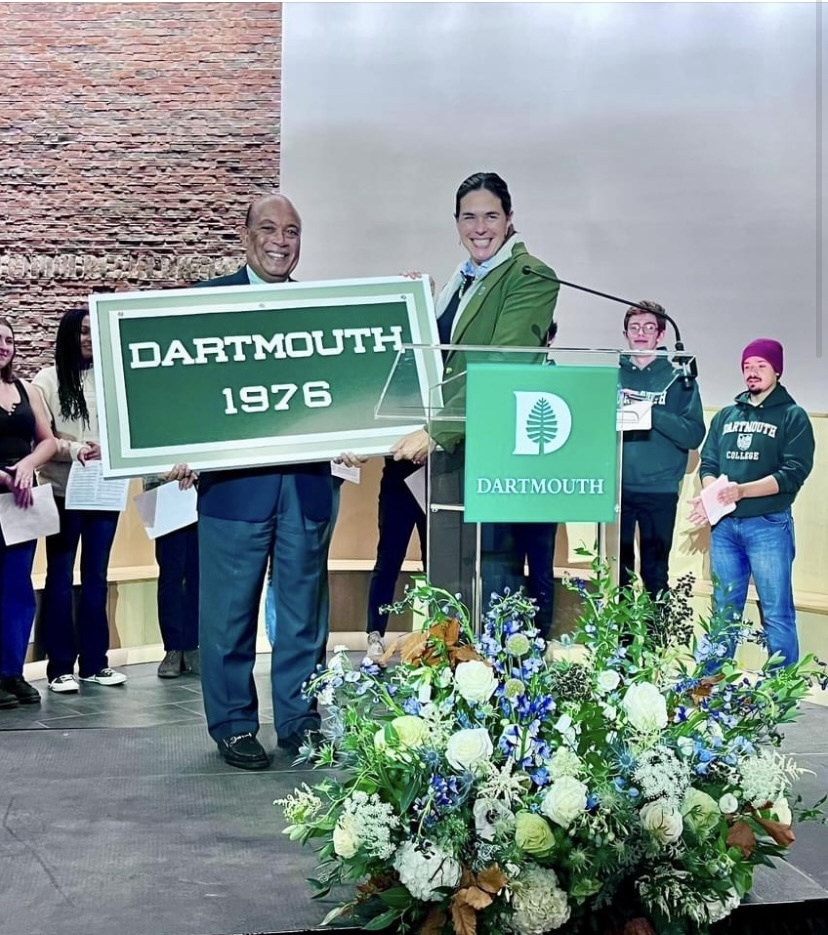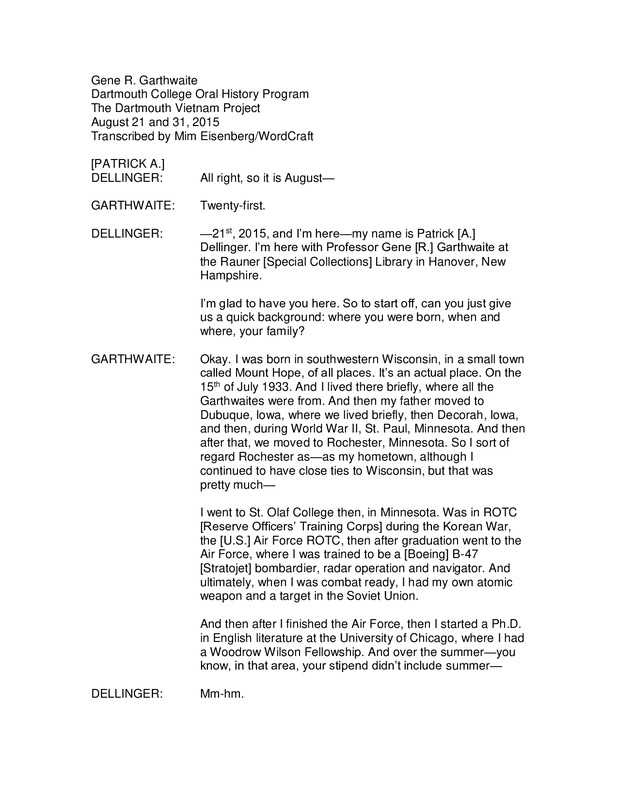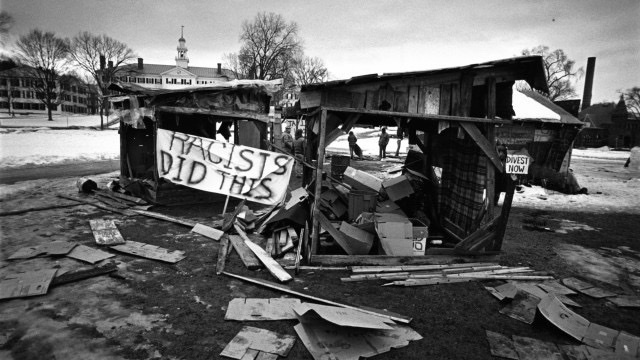Relationships with Dartmouth Presidents
“Well... David [McLaughlin], we have to look at the big picture here. We have to be sympathetic and understanding to all our constituents. You have to understand your stakeholders, and the institution did not understand and respect all of the stakeholders. The growing diverse population [meant that] it was time for Dartmouth to understand that opinions from all fronts should be respected and heard!”
- Gary Love
Relationships with Dartmouth Presidents
In addition to Mr. Love's wonderful relationships with staff in the admissions office, he was able to stay involved with the institution through his relationships with Dartmouth presidents. His closest relationships were with President David Thomas McLaughlin, President James Wright, President John G. Kemeny, and President James O. Freedman. These relationships allowed Mr. Love to stir leaders of the institution to make things happen.
While President Freedman was in office (1987-1998), there was a clamor on campus because there was no endowed chair for a Black professor. The Black community of Dartmouth was unhappy and believed that the institution was behind in making changes, because other institutions of prominence had endowed chairs for Black professors.
This situation drove Mr. Love towards ensuring students of color had professors of color. He assisted in the recruitment of George Langford, who became the first Black professor to hold the E.E. Just faculty chair. The E.E. Just faculty chair became a catalyst for the creation of the E.E. Just Program, with the mission of supporting students of color to pursue STEM disciplines at Dartmouth and achieve their career goals.
At the time of David Thomas McLaughlin’s presidency (1981-1987), there was great discomfort in the Black community due to Dartmouth's continuing investments in South African companies during apartheid. Mr. Love, as President of the Black Alumni of Dartmouth Association (BADA), had conversations with President McLaughlin and other college leaders about divesting from South African companies. Many private leaders worried that divesting would hurt the portfolio and returns of the college. But Mr. Love agitated for them to look at the bigger picture and ensure that the college was sympathetic to the needs and concerns of the Black community.
Students also raised concerns about the apartheid system in South Africa. In his interview, Mr. Love spoke about one Martin Luther King Day when President McLaughlin was off campus. To protest Dartmouth’s investment policies, students set up shanties on the Green. At night a group of students from The Dartmouth Review destroyed the shanties with sledgehammers. There were students sleeping in the shanties when this occurred; thankfully, no one was seriously injured. Afterwards, about one hundred students began a protest for divestment that led to the takeover of Parkhurst Hall. Alexander K. Scott '98, a student during the shanty protests, describes their destruction in an interview twenty-nine years later with Sophie M. Whittemore '20. He described the student body as being "all over the place about it, because a lot of people thought the Green is our sacred place and the shanties shouldn't be there, and Winter Carnival was coming up and it looked ugly."
President McLaughlin decided to call Mr. Love to gain his insight into a solution that would deescalate the turmoil on campus. President McLaughlin realized that arresting students would not be productive and could lead to more insurrection. Mr. Love offered to personally speak with the protesting students to understand their demands. He spoke with one of the student leaders to learn what demands were negotiable and what were must-haves. Mr. Love then communicated these points to the President’s office and, through some diplomacy from both sides, they were able to deescalate the situation. Mr. Love highlights this instance as one of the ways he helped the college to seriously consider divestment from South Africa.
When, seemingly out of nowhere, Dartmouth announced that it was divesting from South African business interests, Mr. Love realized the decision was due to agitation from people like himself who helped move President McLaughlin and Board of Trustees Chairman, George Munroe, to understand all sides of the equation.
President McLaughlin and Mr. Love did business together frequently and formed a very close relationship. When Mr. Love’s daughter, Morgan, was born, President McLaughlin sent gifts for her along with a personal note. The note encouraged Mr. Love to keep Dartmouth close to his heart, and the gift was a Dartmouth knitted sweater. It was heartwarming to hear about the personal relationship Gary Love and David McLaughlin shared. President McLaughlin knew he could trust Mr. Love to help him sort out issues on campus.



